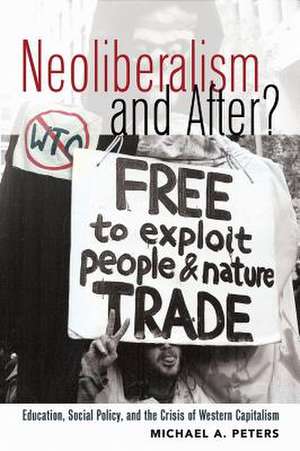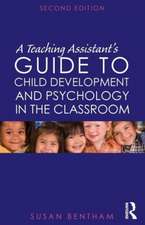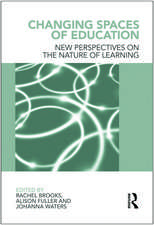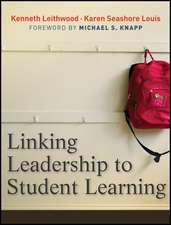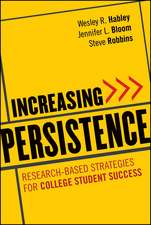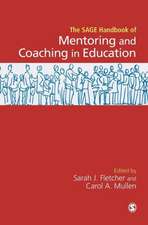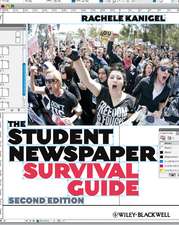Neoliberalism and After?: Global Studies in Education, cartea 4
Autor Michael A. Petersen Limba Engleză Hardback – 29 apr 2011
| Toate formatele și edițiile | Preț | Express |
|---|---|---|
| Paperback (1) | 227.51 lei 38-44 zile | |
| Peter Lang Gmbh, Internationaler Verlag Der W – 27 apr 2011 | 227.51 lei 38-44 zile | |
| Hardback (1) | 738.32 lei 38-44 zile | |
| Peter Lang Gmbh, Internationaler Verlag Der W – 29 apr 2011 | 738.32 lei 38-44 zile |
Din seria Global Studies in Education
-
 Preț: 380.27 lei
Preț: 380.27 lei -
 Preț: 406.00 lei
Preț: 406.00 lei - 23%
 Preț: 518.94 lei
Preț: 518.94 lei -
 Preț: 416.89 lei
Preț: 416.89 lei - 9%
 Preț: 836.28 lei
Preț: 836.28 lei -
 Preț: 374.03 lei
Preț: 374.03 lei -
 Preț: 287.35 lei
Preț: 287.35 lei - 8%
 Preț: 551.71 lei
Preț: 551.71 lei - 23%
 Preț: 614.85 lei
Preț: 614.85 lei -
 Preț: 372.08 lei
Preț: 372.08 lei -
 Preț: 269.63 lei
Preț: 269.63 lei - 9%
 Preț: 797.16 lei
Preț: 797.16 lei -
 Preț: 256.47 lei
Preț: 256.47 lei - 9%
 Preț: 1129.66 lei
Preț: 1129.66 lei - 9%
 Preț: 795.31 lei
Preț: 795.31 lei -
 Preț: 271.03 lei
Preț: 271.03 lei -
 Preț: 215.48 lei
Preț: 215.48 lei - 27%
 Preț: 948.81 lei
Preț: 948.81 lei - 9%
 Preț: 795.45 lei
Preț: 795.45 lei - 27%
 Preț: 1063.71 lei
Preț: 1063.71 lei - 9%
 Preț: 854.20 lei
Preț: 854.20 lei -
 Preț: 243.53 lei
Preț: 243.53 lei - 9%
 Preț: 775.74 lei
Preț: 775.74 lei - 9%
 Preț: 917.37 lei
Preț: 917.37 lei -
 Preț: 260.27 lei
Preț: 260.27 lei - 9%
 Preț: 890.91 lei
Preț: 890.91 lei -
 Preț: 269.66 lei
Preț: 269.66 lei - 9%
 Preț: 862.97 lei
Preț: 862.97 lei - 9%
 Preț: 729.31 lei
Preț: 729.31 lei - 23%
 Preț: 589.55 lei
Preț: 589.55 lei -
 Preț: 302.91 lei
Preț: 302.91 lei -
 Preț: 292.14 lei
Preț: 292.14 lei - 27%
 Preț: 773.13 lei
Preț: 773.13 lei -
 Preț: 290.96 lei
Preț: 290.96 lei
Preț: 738.32 lei
Preț vechi: 811.34 lei
-9% Nou
Puncte Express: 1107
Preț estimativ în valută:
141.27€ • 147.90$ • 116.90£
141.27€ • 147.90$ • 116.90£
Carte tipărită la comandă
Livrare economică 01-07 aprilie
Preluare comenzi: 021 569.72.76
Specificații
ISBN-13: 9781433112065
ISBN-10: 143311206X
Pagini: 222
Dimensiuni: 231 x 157 x 19 mm
Greutate: 0 kg
Ediția:2. Auflage. New.
Editura: Peter Lang Gmbh, Internationaler Verlag Der W
Seria Global Studies in Education
ISBN-10: 143311206X
Pagini: 222
Dimensiuni: 231 x 157 x 19 mm
Greutate: 0 kg
Ediția:2. Auflage. New.
Editura: Peter Lang Gmbh, Internationaler Verlag Der W
Seria Global Studies in Education
Notă biografică
Michael A. Peters is Professor of Education in the Department of Educational Policy Studies at the University of Illinois at Urbana-Champaign and Adjunct Professor in the School of Art at the Royal Melbourne Institute of Technology, Australia. He is the editor of three journals: Educational Philosophy and Theory, Policy Futures in Education, and E-Learning and Digital Media. His most recent books include: The Last Book of Postmodernism: Apocalyptic Thinking, Philosophy and Education in the Twenty-First Century (Peter Lang, 2011); Governmentality Studies in Education (2009); Creativity and the Global Knowledge Economy (with P. Murphy & S. Marginson) (Peter Lang, 2009); Global Knowledge Cultures (with C. Kapitzke) (2007); Subjectivity and Truth: Foucault, Education and the Culture of the Self (with Tina Besley) (Peter Lang, 2008); Building Knowledge Cultures: Educational and Development in the Age of Knowledge Capitalism (with Tina Besley) (2006); and Knowledge Economy, Development and the Future of the University (2007).
Recenzii
In this crisp, elegant volume Michael A. Peters dissects the fascinating history of neoliberalism from its roots in the Mont Pelerin Society and German ordoliberalism, and the Chicago and Public Choice schools, to its irradiation through obscure think tanks into the world of public policy. The impact of neoliberal ideas in the second half of the twentieth century was deep going. Peters, in a reflective mood, assays the metaphors and models of the movement, its impact on the university and the public sector, its challenge to academia as a liberal profession, the neoliberal philosophy of individualism and its paradoxical solicitation of managerialism, its pioneering of the economics of information and contemporary knowledge capitalism, and much else besides. Peters' style is urbane, his tenor is summative, and his analysis is crystal sharp. He revisits Foucault's intricate probing of neoliberal schools and explores the post-modern currents that both criticised and celebrated various forms of neoliberalism. He returns repeatedly to the still-extraordinary case of New Zealand that turned on a penny in the 1980s from entrenched welfare state to neoliberal model, and concludes with the prophecies of 'the end of neoliberalism' that accompanied the global financial crisis. In this book, Peters sums up the experiences of a generation that critiqued the neoliberals without ever conquering them. He does this with pithy erudition and a terse command of the intellectual ardours of the past forty years. (Peter Murphy, Associate Professor of Communications, Monash University) Bringing together findings from several decades of observation and analysis, Michael A. Peters' cosmopolitan survey draws on the recent experience of his own country, Aotearoa/New Zealand, to sharply illuminate the impacts in several countries of neoliberal governmentality on public education policies, and their corrosive implications for public culture and social justice. (Colin Gordon, Royal Brompton & Harefield NHS Trust) World recessions are always turning points. In 'Neoliberalism and After?' Michael A. Peters opens to clear-minded scrutiny the main political-economic ideas that evolved after the last world recession, that of the 1930s. Those ideas reached a dead end in 2008-2009. Critical scrutiny is vital if we are to clear away the rubble on the road - left by the wreckage of neoliberalism as both a guide to action and a system of rule - and move forward. This brilliant book demonstrates that in uncertain times, we have continuing resources with which to illuminate the next phase - the critique of liberal political philosophy, Foucault's demolition of control systems, creative cultures in universities and civil society, education as a universal welfare right and a condition of democratic advance. (Simon Marginson, Centre for the Study of Higher Education, University of Melbourne, Australia) One of our leading contemporary social philosophers and educational theorists takes us on a journey across the complex and uneven contours of neoliberalism - a concept that is much used but rarely defined and exemplified so clearly as it is in this book. Peters examines neoliberalism's roots in the foundational ideologies and practices of modernity, tracing multiple lines of development through to its spectacular collapse in the financial contagion of 2008, and its subsequent virulent return. This book is an indispensable context-setting guide for all those with an interest in, and concern for, contemporary social and educational policy. (William Cope, Research Professor, Department of Educational Policy Studies, College of Education, University of Illinois, Urbana-Champaign) There have been many efforts over many decades to promote (or defend) 'neoliberal' institutions and practices as the best basis for economic, legal, political, social, and moral order in complex social formations. Neoliberalism began life as an intellectual-cum-political project in 1938; enjoyed growing
